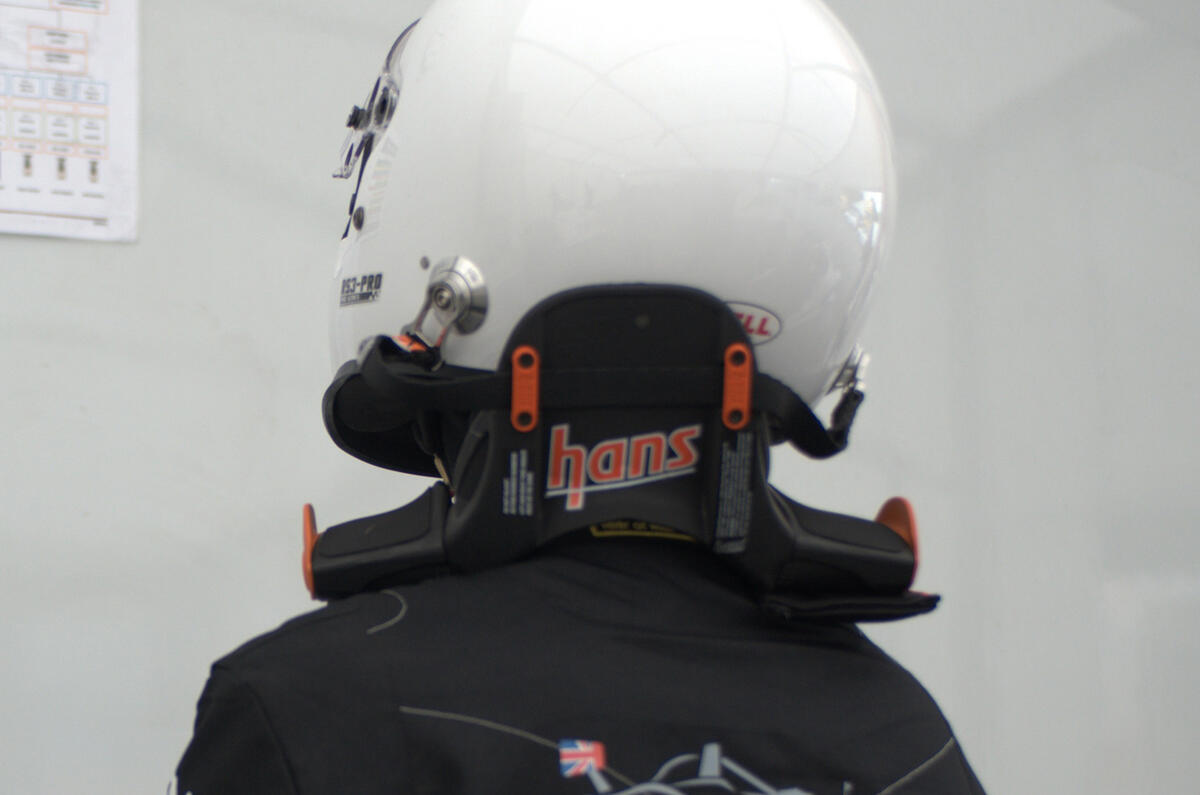Without wishing to blurt out a sob story or sound too dramatic, being told that wearing a HANS device in a motor racing accident probably saved your life is enough to want to shout about the benefits of the system.
It was said to me by the fine medical team at Oulton Park over the weekend after they got me back on my feet having had a big ’un in the Radical SR1 Cup.
Cars are so strong these days – the Radical SR1 being a case in point after leaving me without a scratch after such a high-speed crash – but the human body is as delicate as ever.
HANS is a brand name for Frontal Head Restraints (FHR) systems, like 'Hoover' is to vacuum cleaners. It’s a U-shaped device that slots around your neck, sits on your shoulders and tethers to your helmet. The upper belt straps of the car’s harness then go over the device and are tightened as normal, meaning that, in effect, your head and neck are also connected to and protected by the safety harness.
FHR devices are designed to stop the head from rapidly decelerating in an accident, without stopping the neck from moving. It keeps the head in a relative position to the body and allows the harness to absorb the impact.
This prevents what is called a basilar skull fracture. It's a common cause of death in motorsport and is caused by the head rapidly moving forwards while the body stays still. And it's preventable by wearing a HANS device.
All this is a scary thing to read and write about once you’ve had an accident, but it's also heartening to know it works and does its job so effectively. The medical team at Outlon Park couldn’t speak more highly of the system, and they want the word spread on just how effective they are.
So here is that word.
The Motor Sports Association knows about it too, and is making the HANS device compulsory for all circuit racing from 2016 (albeit with a few period exceptions). It’s already been compulsory for post-2000 single-seater drivers to wear one, and it was announced earlier this month that stage rallying, hill climb and sprint event competitors will also have to wear one from next year.
Yes, they’re not cheap (starting at around £350), but you can guess the counter-argument. Indeed, I’m yet to see a driver without one at the two meetings at which I've raced.
On announcing a widening of the mandatory use of FHRs, Tony Scott Andrews, chairman of the Motor Sports Council, said he believed “the governing body has a responsibility to ensure so far as possible the safety of its competitors and the decision has been taken in pursuit of that aim”.










Join the debate
Add your comment
Reality
What if, you fall of a horse.